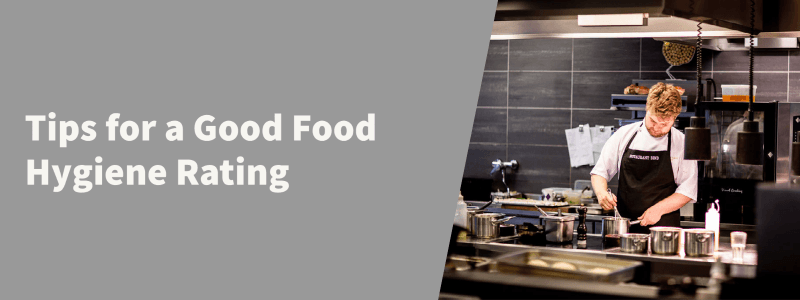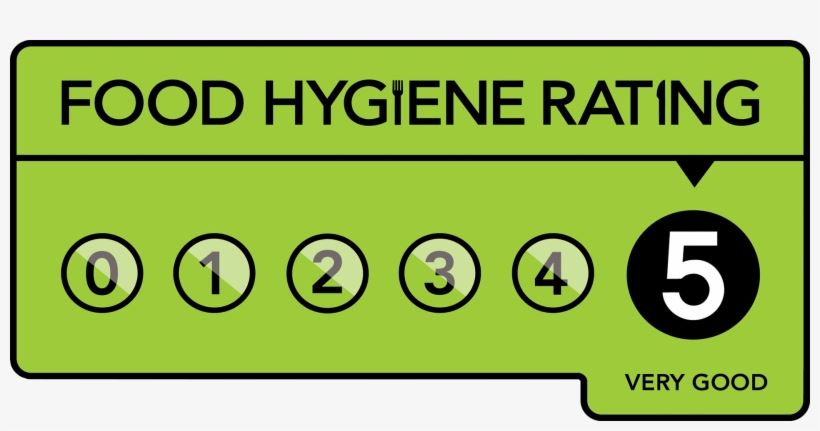Having a high food hygiene rating could easily be the difference between A good reputation and a bad one. Customers take these ratings seriously, and for good reason. Think of how many times you have heard someone – in real life or online – talk about how a venue got a poor food hygiene rating. Low ratings spread like wildfire and ruin establishments in a matter of weeks. This is clearly something you don’t want.
You may be wondering what ways you can try and keep, or improve, your food hygiene rating in time for the festive period. Especially after nearly two years of less-than-desirable sales due to the COVID-19 crisis. Below we’ve put together all you need to know to keep your restaurant in the good books of the Food Standards Agency and your customers.
What are the food hygiene ratings?
The below is the ranking from the FSA website. It details what each rating means:
The scheme gives businesses a rating from 5 to 0 which is displayed at their premises and online so you can make more informed choices about where to buy and eat food.
5 – hygiene standards are very good
4 – hygiene standards are good
3 – hygiene standards are generally satisfactory
2 – some improvement is necessary
1 – major improvement is necessary
0 – urgent improvement is required
How can you improve your rating?
There are a few ways that you can keep your rating high. The ‘very good’ rating should be the gold standard for all venues. Here are a few ways to help you get there:
Food Hygiene at its Best
A lot of what the FSA look for centres around your practices with storing food. This means correct labelling and containers, how the food is stores and whether the food you use is in date and not soiled/bad.
Food management is very important in the restaurant industry, while preparation and cleanliness can influence the health of your customers and employees. Always ensure you have the right system in place and clean down surfaces after using them.
Keep Your Staff in the Loop
As someone who runs the business, it could be fair to argue that you’re not always there to check on the food hygiene standards within your business. That’s why you need to ensure your employees are trained and aware of the advantages, standards, and pitfalls of food hygiene.
Kitchen staff should always know about the importance of food hygiene, yet waiting staff may not. Impressing how crucial proper protective clothing is, for example, would go a long way to helping.
Keep Good Records
The Food Standards Agency will want to know about the records you keep and the frequency you clean your premises. These records are usually on walls or notice boards and, amongst other things, show willing to keep standards high.
Buy the Right Cleaning Products
The vast array of cleaning products on offer can be overwhelming. But ensuring you have a good stock of anti-bacterial products, mop heads, sanitiser, clothes and PPE, sponges, cleaning towels and more will remove the poor excuse of “but we didn’t have any products left”. This should be the kitchen staff’s responsibility but be sure to keep an eye on how they go. Our website has its own Your Leisure & Lifestyle Hub that outlines how Direct365 can help your business.
Make Sure Waste is in Check
Food hygiene and cleanliness is important, but all of it isn’t always obvious. Making sure your waste is stores correctly and in a way that won’t encourage rats or pests. Another service we provide is taking care of your waste so that it never builds up and it’s always clean and tidy.
These are a few ways that your food hygiene can get better or stay at a high level. All surfaces should be clean and clear but most of all, training your staff can do the world of good. If you need any help with your hygiene products, look no further than Direct365.
Back

